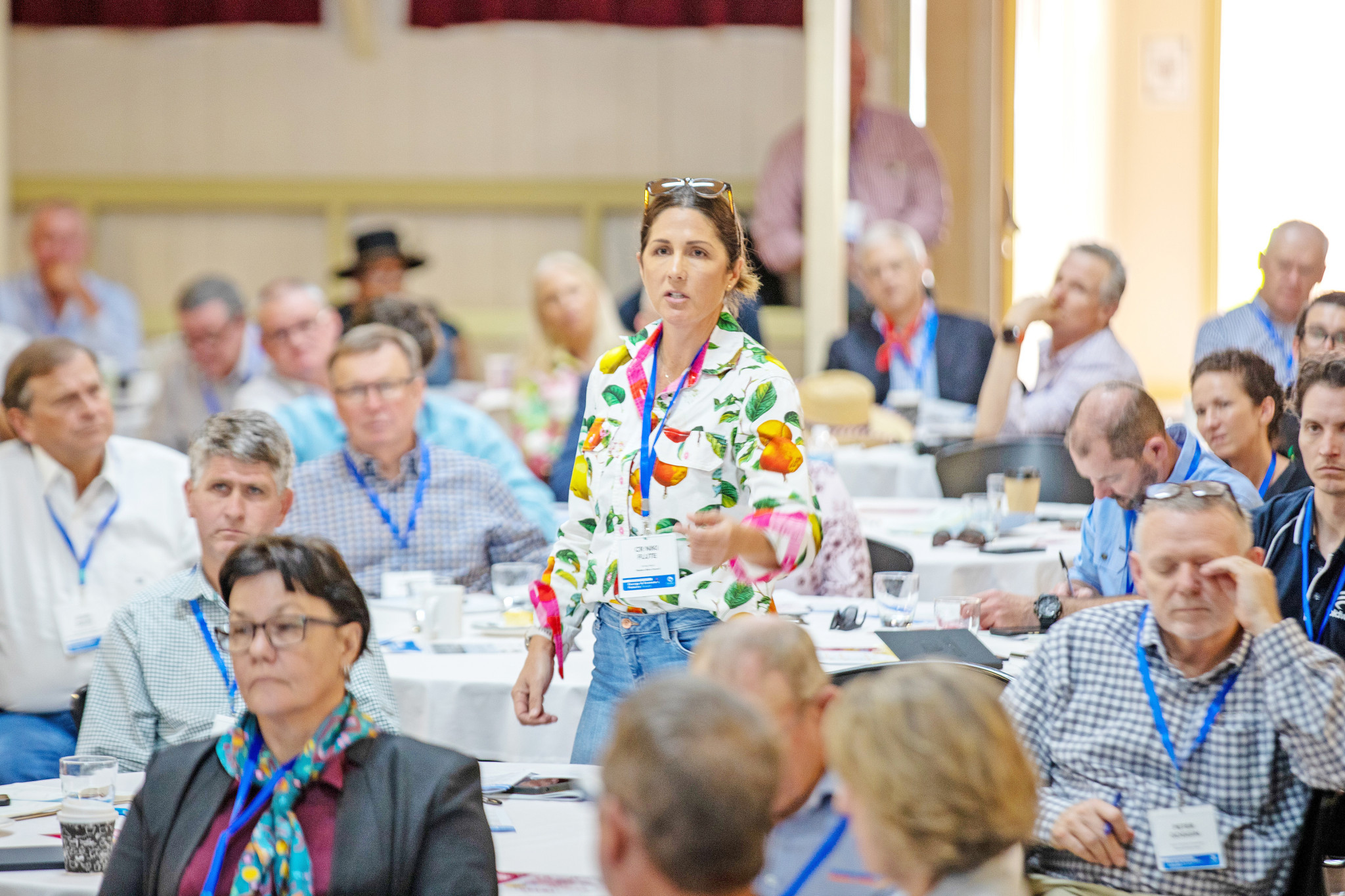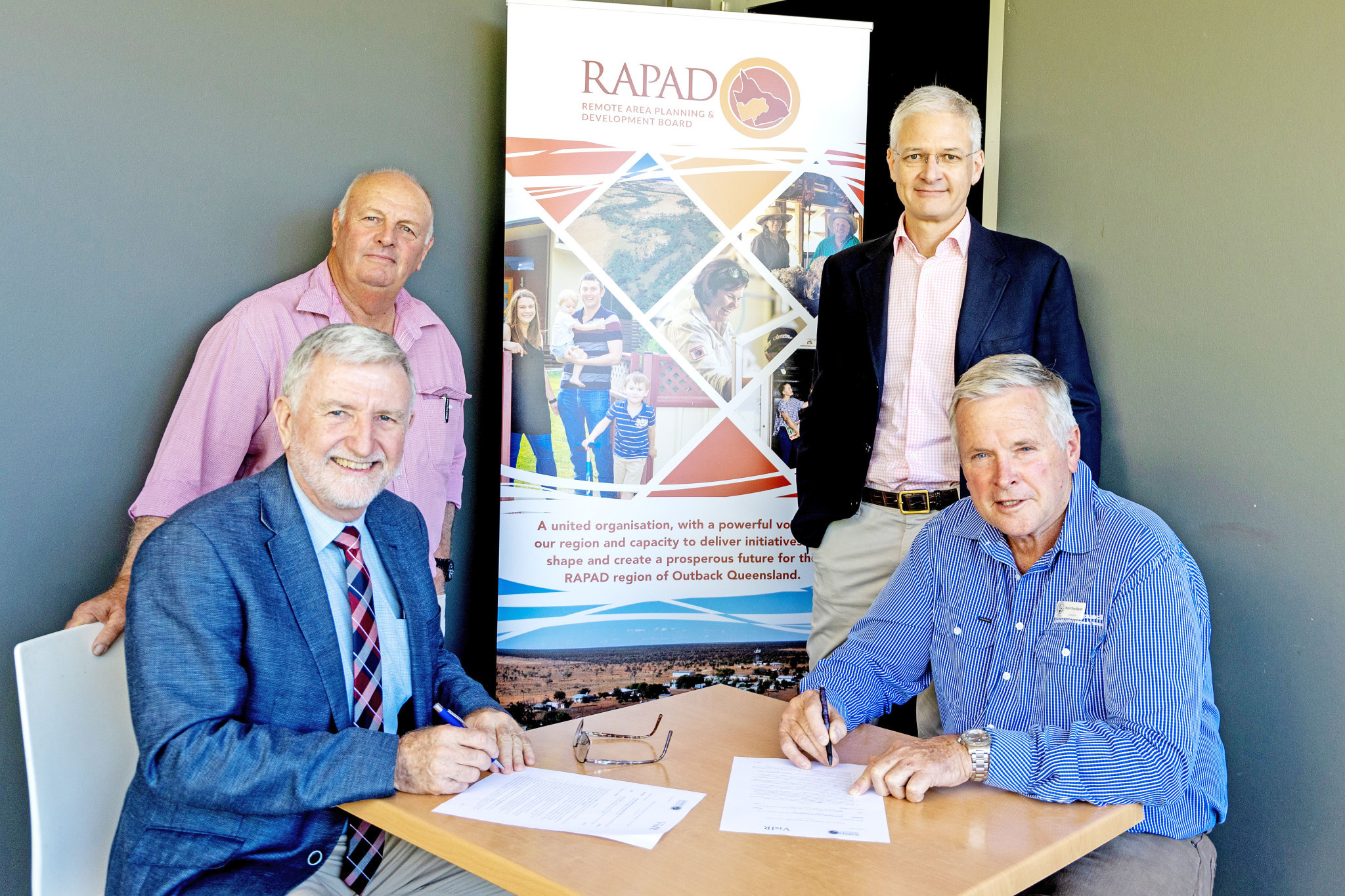General News
2 October, 2024
Renewable 'royalties' a hot topic for Outback councils
A recent forum highlighted the need for the community to benefit from new energy schemes.

A proposed community benefit scheme where major energy project proponents would pay millions of dollars in annual royalty payments to fund local government infrastructure has taken a major step forward, with the signing of Australia’s first formal agreement in Western Queensland.
The scheme is being studied across regional Australia, including in the North West, as local governments look for new initiatives to increase their revenue base to improve service delivery.
Similar to the CopperString project linking Mount Isa to the national energy grid at Townsville, the Remote Area Planning and Development Board (RAPAD), which consists of seven council areas in Central Queensland, is currently in negotiations to create its own 930km powerline project that would connect Hughenden to Barcaldine and Biloela, which could then tap into an existing line to Gladstone.
The powerline project would open vast land areas for future solar and wind energy projects.
In an Australian-first, the RAPAD power grid stakeholders have signed a Community Benefit Royalty Agreement (CBRA), which aims to deliver “royalty-style” payments to local government to support ongoing social and economic infrastructure investment determined by the community.
RAPAD and CopperString founders VisIR, led by John and Joseph O’Brien, developed the CBRA with the ambition of delivering substantive financial benefits to communities from future transmission and clean energy infrastructure developed as a result of the proposed RAPAD Power Grid.
Initial modelling indicates total royalty payments could exceed $160 million over 30 years.
Payments under the RAPAD Power Grid CBRA are part of the community benefit expenditure that energy investors typically include in development budgets and does not change taxes, fees and charges paid to state and federal governments, as well as local government rates.
The scheme is based on a similar concept in Texas, which is among the biggest renewable energy-producing areas in the world, with a current output of more than three times the total energy needs of Queensland.

Texas has a royalty-style system in place that is expected to generate more than $11 billion during the lifetime of its current wind and solar projects, with a pipeline of proposed new developments that could double that figure in coming years.
A 2023 study into the Texas renewable industry found that, due to the royalty-style scheme, some counties had more than doubled their revenue base, which had actually enabled some areas to decrease its local government charges on homeowners.
Speaking from Barcaldine at the RAPAD Energy and Economic Development Futures Forum last week, Longreach mayor and RAPAD chair Tony Rayner said with countless renewable projects being spruiked across rural Australia, the CBRA could become a template for other rural areas to increase revenue to fund vital infrastructure and services.
“We don’t just want to be renewable energy hosts; we want to be renewable energy partners,” he said.
“We believe the CBRA scheme will provide renewable energy project investors, developers and owners with certainty and make our region more attractive for investment, and ensure local communities are at the table very early in the process.”
North West Queensland Regional Organisation of Councils executive director Greg Hoffman said the royalty agreement concept was discussed at a forum in Julia Creek last week.
Mr Hoffman said the need to develop new strategies to reduce the cost shifting pressures on local government was a major consideration in NWQROC’s enabling infrastructure masterplan, released earlier this year.
“The (royalty) concept has real merit,” Mr Hoffman told North West Weekly.
“We know that the cost of building the supporting infrastructure required for some of these projects is well beyond the budgets of local government.
“Why should councils and government bear the costs when the final beneficiaries of the support infrastructure are the companies?”
Flinders Shire acting mayor Niki Flute said Hughenden would host a public forum in the coming weeks to discuss the details and benefits of the CBRA.
“(CBRA) is an exciting step forward for our region,” she said.
“This innovative initiative is designed to secure direct financial benefits for our community through the development of nationally significant energy infrastructure, promising a stable income source for decades to come.”